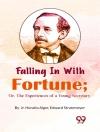In ‘Of Time and the River, ‘ Thomas Wolfe crafts a sprawling narrative that explores the complexities of identity, time, and the human experience. This semi-autobiographical novel, a sequel to his earlier work ‘Look Homeward, Angel, ‘ is characterized by Wolfe’s signature lyrical prose and an impressionistic style that captures the rhythms of thought and memory. The narrative meanders through the protagonist’s journey from his youth in North Carolina to his struggles in the artistic maelstrom of New York City, as Wolfe juxtaposes the tranquility of nature with the turbulence of modern life, ultimately delving into themes of loss, belonging, and the inexorable passage of time. Thomas Wolfe, born in 1900 in Asheville, North Carolina, was a pivotal figure in 20th-century American literature. Wolfe’s own tumultuous experiences in finding his place within the literary world, as well as his deep connection to his Southern roots, are vividly reflected in the intricate tapestry of his characters and settings. His distinctive voice and rich, evocative language have left a lasting impact on American letters, and ‘Of Time and the River’ exemplifies his artistic evolution. For readers seeking a profound exploration of life’s transient nature and the quest for meaning, Wolfe’s ‘Of Time and the River’ is an unmissable journey. Its powerful prose and emotional depth invite reflection, making it an essential read for those interested in the interplay of personal and universal narratives in literature.
A propos de l’auteur
Thomas Wolfe (1900–1938) was an American novelist of the early 20th century, recognized for his highly original literary techniques and an overwhelming, lyrical prose style. Born in Asheville, North Carolina, Wolfe mined the rich terrain of his early life to create passionate, sprawling narratives. His legacy in American literature is embodied in his semi-autobiographical novel, ‘Look Homeward, Angel’, which casts a sharp eye on the complexities of early 20th-century American life. However, it is perhaps ‘Of Time and the River’, a continuation of the saga of Eugene Gant, for which Wolfe is best remembered. Published in 1935, this epic work is a vivid, stream-of-consciousness account of Gant’s journey from the South to the wider world, often drawing on Wolfe’s own experiences. Wolfe’s narratives, characterized by a gargantuan appetite for life and the articulation of an intensely personal vision, broke traditional narrative constraints and gave rise to comparisons with contemporaries like Faulkner and Fitzgerald. Despite his early death at the age of 37, Wolfe’s influence endures, with works like ‘Of Time and the River’ standing as profound explorations of the human spirit entwined with the American experience. His novels, both for their scale and their intimate excavation of youth, loss, and the vast tableau of American society, are remembered as precursors to the American confessional writing that would follow in subsequent decades.












